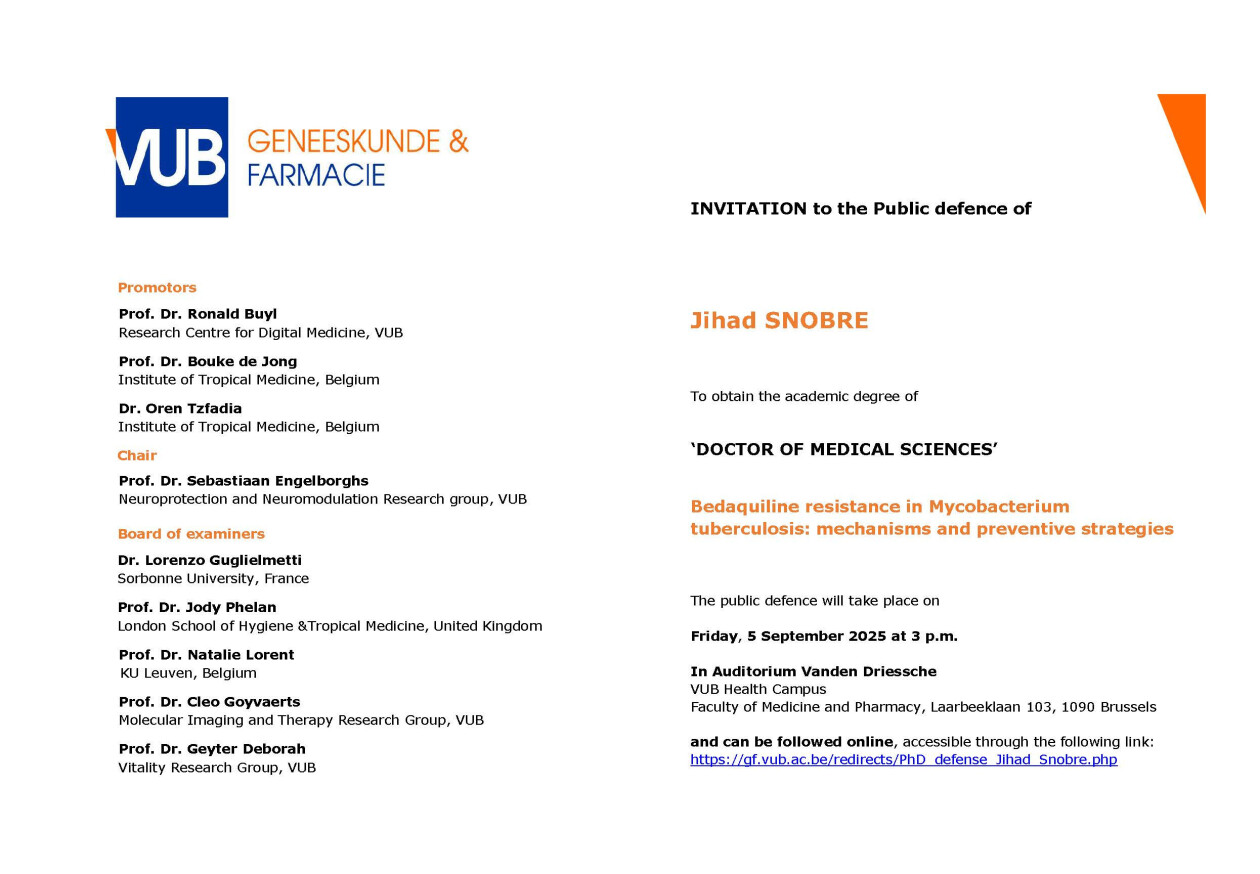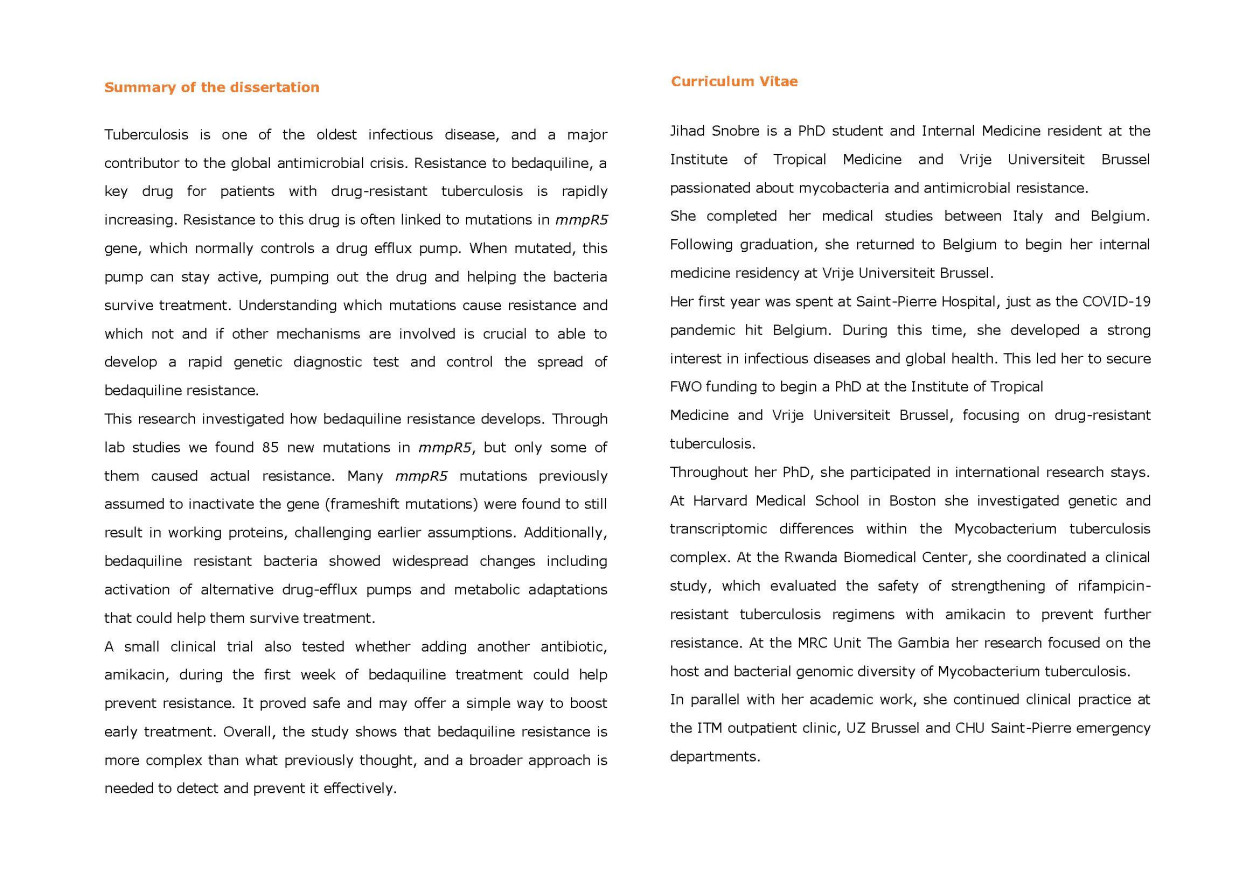PhD defence Jihad Snobre
Auditorium Vanden Driessche, VUB Health Campus, Faculty of Medicine and Pharmacy, Laarbeeklaan 103, 1090 Brussels
Show route
Supervisors
Prof. dr. Bouke de Jong (ITM)
Prof. dr. Ronald Buyl (VUB)
Dr. Oren Tzfadia (ITM)
Abstract
Tuberculosis is one of the oldest infectious disease, and a major contributor to the global antimicrobial crisis. Resistance to bedaquiline, a key drug for patients with drug-resistant tuberculosis is rapidly increasing. Resistance to this drug is often linked to mutations in mmpR5 gene, which normally controls a drug efflux pump. When mutated, this pump can stay active, pumping out the drug and helping the bacteria survive treatment. Understanding which mutations cause resistance and which not and if other mechanisms are involved is crucial to able to develop a rapid genetic diagnostic test and control the spread of bedaquiline resistance.
This research investigated how bedaquiline resistance develops. Through lab studies we found 85 new mutations in mmpR5, but only some of them caused actual resistance. Many mmpR5 mutations previously assumed to inactivate the gene (frameshift mutations) were found to still result in working proteins, challenging earlier assumptions. Additionally, bedaquiline resistant bacteria showed widespread changes including activation of alternative drug-efflux pumps and metabolic adaptations that could help them survive treatment.
A small clinical trial also tested whether adding another antibiotic, amikacin, during the first week of bedaquiline treatment could help prevent resistance. It proved safe and may offer a simple way to boost early treatment. Overall, the study shows that bedaquiline resistance is more complex than what previously thought, and a broader approach is needed to detect and prevent it effectively.
Schedule
Defence: 3 pm


Spread the word! Share this event on